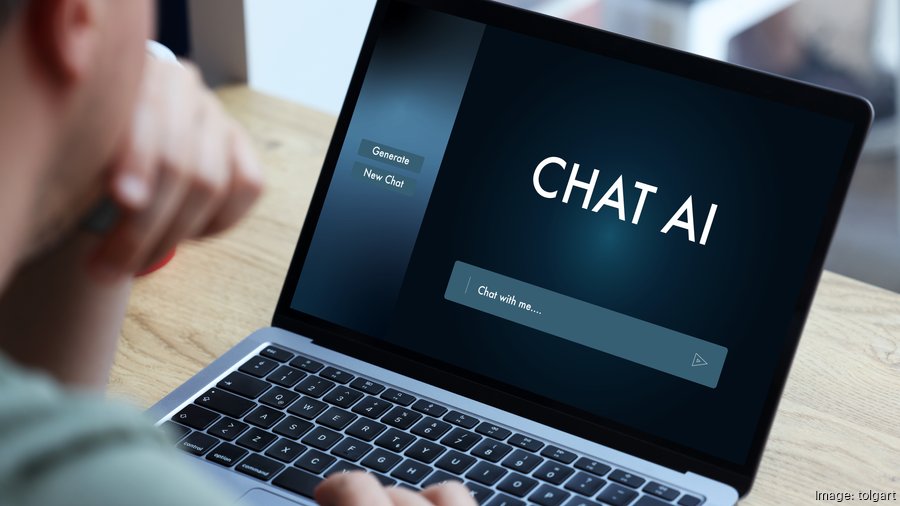AI Software That’s Changing Jobs in Silicon Valley
AI Software That’s Changing Jobs in Silicon Valley the global epicenter of tech innovation, is witnessing a paradigm shift. Artificial intelligence is no longer a futuristic buzzword—it’s a potent force reshaping job landscapes. From automating routine coding to powering hyper-intelligent analytics, AI software impact on Silicon Valley jobs is reverberating across industries, skill sets, and corporate hierarchies.

From Startup Garages to Algorithmic Giants
Silicon Valley has long been known for its trailblazing spirit. Home to tech titans like Google, Apple, Meta, and thousands of startups, the region thrives on innovation. Yet, the latest disruptor isn’t a new gadget or platform—it’s artificial intelligence.
Today, AI software impact on Silicon Valley jobs is more than an economic ripple. It’s a tectonic shift altering the DNA of work itself. This software isn’t just supporting employees—it’s replacing tasks, redesigning workflows, and reconfiguring how productivity is measured.
The Rise of Task-Specific AI
Gone are the days when AI was a monolithic entity housed in research labs. Modern AI software is modular, nimble, and razor-sharp in scope. Take GitHub Copilot, for instance. This coding assistant can autocomplete lines of code, suggest logic, and even debug software in real time.
For junior developers, this tool is both a blessing and a threat. It accelerates the learning curve but also reduces the demand for entry-level talent. Similarly, Jasper AI is revolutionizing content creation by generating articles, emails, and ad copy with minimal human input.
This evolution encapsulates the AI software impact on Silicon Valley jobs—task-specific tools are eroding the traditional job structure, fragmenting roles into algorithm-friendly components.
The Domino Effect in Software Engineering
Software engineering, once a secure stronghold of human intellect, is undergoing metamorphosis. Engineers are no longer just builders; they are curators of AI-generated code. The act of coding is shifting from creation to supervision.
AutoML platforms like Google’s Vertex AI allow data scientists to train models without writing complex algorithms. This reduces reliance on specialized ML engineers and democratizes access to AI. It also triggers a domino effect—fewer roles are needed for traditional model development, altering the employment equilibrium.
The AI software impact on Silicon Valley jobs in engineering is not outright elimination—it’s transformation. Engineers now need hybrid skills: part coder, part data interpreter, part ethicist.
Automation in Marketing and Sales
AI’s influence isn’t limited to technical domains. Marketing, a field once reliant on creative flair and human intuition, is now data-rich and machine-optimized.
Tools like HubSpot’s AI assistant analyze customer behavior, optimize content distribution, and forecast campaign outcomes with surgical precision. Salesforce Einstein does the same in sales—predicting leads, automating email responses, and scoring prospects.
The consequence? A leaner workforce. Marketing analysts, campaign strategists, and sales development representatives are facing recalibrated roles or redundancy. The AI software impact on Silicon Valley jobs in marketing is stealthy but significant—trading creative instincts for algorithmic decision-making.
Human Resources Gets a Digital Makeover
Recruiting used to be a human-dominated process—screening resumes, scheduling interviews, conducting assessments. Not anymore.
Platforms like HireVue and Pymetrics use AI to assess candidates based on video interviews, micro-expressions, and psychometric analysis. They promise to eliminate bias, but also sideline traditional HR roles.
Talent acquisition specialists must now learn to interpret algorithmic rankings and leverage data analytics. The AI software impact on Silicon Valley jobs in HR is changing the narrative from “people-first” to “data-led hiring.”
Legal and Compliance: Not So Untouchable
Even the sanctified realms of legal and compliance are feeling the tremors. AI-powered tools like LawGeex can review contracts faster and more accurately than junior associates. Compliance platforms scan thousands of documents to identify regulatory risks within seconds.
This efficiency is undeniably valuable—but it also compresses job opportunities in entry-level legal roles. The AI software impact on Silicon Valley jobs in legal departments is forcing firms to rethink their talent pipelines.
Now, legal professionals must upskill, focusing on nuanced interpretation, negotiation, and strategy—areas where AI still lacks finesse.
Creative Industries Enter the AI Era
Contrary to popular belief, AI isn’t tone-deaf to creativity. DALL·E, Midjourney, and Runway are proof that AI can generate stunning visual art, video edits, and music compositions. Copy.ai and Grammarly go beyond grammar—they sculpt tone, context, and persuasion.
Graphic designers, video editors, and writers are navigating a new reality. Instead of starting from scratch, they’re refining AI drafts. This hybrid model—human creativity augmented by machine output—represents a hallmark of the AI software impact on Silicon Valley jobs in the creative economy.
It’s a double-edged sword: while AI democratizes content creation, it also dilutes the need for full-time creatives.
Startups Built on AI-First Models
AI-native startups are mushrooming across Silicon Valley. Unlike traditional firms that retrofit AI into their workflows, these companies are born with automation at their core.
Take Synthesia, which creates AI-generated videos with digital avatars. Or Adept AI, which builds AI agents that perform browser tasks on behalf of users. These ventures redefine job roles from the outset—hiring fewer generalists and more algorithm engineers, AI trainers, and UX designers.
This marks a new wave of labor architecture. The AI software impact on Silicon Valley jobs in startups isn’t just displacement—it’s displacement with reinvention.
The Changing Face of Management
Middle management has long been a buffer between executive vision and operational execution. But AI’s ability to deliver real-time insights, performance tracking, and predictive analytics is shrinking this layer.
Tools like Tableau, Power BI, and Notion AI empower executives to analyze KPIs without intermediaries. Managers are now expected to focus on empathy, team dynamics, and strategic alignment—traits that resist automation.
As a result, the AI software impact on Silicon Valley jobs in management is pushing professionals toward a more human-centered leadership style.
Re-skilling Becomes a Survival Strategy
With job boundaries blurring and automation accelerating, upskilling is no longer optional—it’s existential. Silicon Valley firms are investing heavily in internal training programs, bootcamps, and AI literacy courses.
Google’s “AI for Everyone” initiative and Meta’s LLaMA community are making machine learning more accessible to non-engineers. Companies understand that the AI software impact on Silicon Valley jobs is fluid—reskilling can help navigate the tide rather than drown in it.
Those who adapt thrive; those who resist risk obsolescence.
Ethical Dilemmas and Workforce Anxiety
The rapid integration of AI also brings an emotional toll. Professionals worry about job stability, purpose, and their long-term value. Ethical questions abound—should AI make hiring decisions? Can it truly be unbiased? What happens when mistakes occur?
Transparency, explainability, and accountability are becoming vital components of AI deployment. Firms are hiring AI ethicists, fairness auditors, and policy designers to balance efficiency with responsibility.
Thus, the AI software impact on Silicon Valley jobs is not just economic—it’s psychological and philosophical.
Government and Policy Response
Regulatory frameworks are beginning to catch up. California is contemplating legislation to govern algorithmic transparency in hiring. The White House has released AI guidelines focused on fairness and worker rights.
Public pressure is mounting. Labor unions and advocacy groups are demanding safeguards, job transition support, and ethical audits. In response, companies are creating AI oversight boards and publishing model documentation.
Policy will play a key role in shaping how the AI software impact on Silicon Valley jobs unfolds in the coming decade.
Jobs That Are Thriving in the AI Age
Not all news is grim. Certain roles are booming due to AI integration. These include:
- Prompt engineers: Experts who fine-tune AI inputs for optimal results.
- AI product managers: Professionals who define strategy and deployment for AI tools.
- Data annotators: Critical workers who label datasets for training models.
- Cybersecurity analysts: Demand has surged due to AI-driven threat detection.
- Human-AI interaction designers: Specialists who ensure smooth collaboration between humans and machines.
The AI software impact on Silicon Valley jobs isn’t a zero-sum game—it’s creating new ecosystems even as it dismantles old ones.
A Glimpse into the Future
Looking ahead, AI will become more autonomous, contextual, and emotionally intelligent. Natural language interfaces, digital twins, and multi-modal AI will further redefine workflows.
Silicon Valley’s workforce must pivot from execution to orchestration. The most valuable employees will be those who can leverage AI as a co-pilot—not a competitor.
Long-term, the AI software impact on Silicon Valley jobs could foster a renaissance of human potential—liberating workers from mundane tasks and enabling focus on empathy, innovation, and complex problem-solving.
Silicon Valley stands at the crossroads of disruption and opportunity. The infusion of AI into daily workflows is irreversible, but not dystopian. With foresight, adaptation, and ethical stewardship, the region can harness this transformation for collective progress.
The AI software impact on Silicon Valley jobs is multifaceted—eroding some roles while uplifting others. It demands a recalibration of skills, mindsets, and policies. But if any place is equipped to lead this change with courage and creativity, it’s Silicon Valley.
The future isn’t jobless. It’s job-different.



